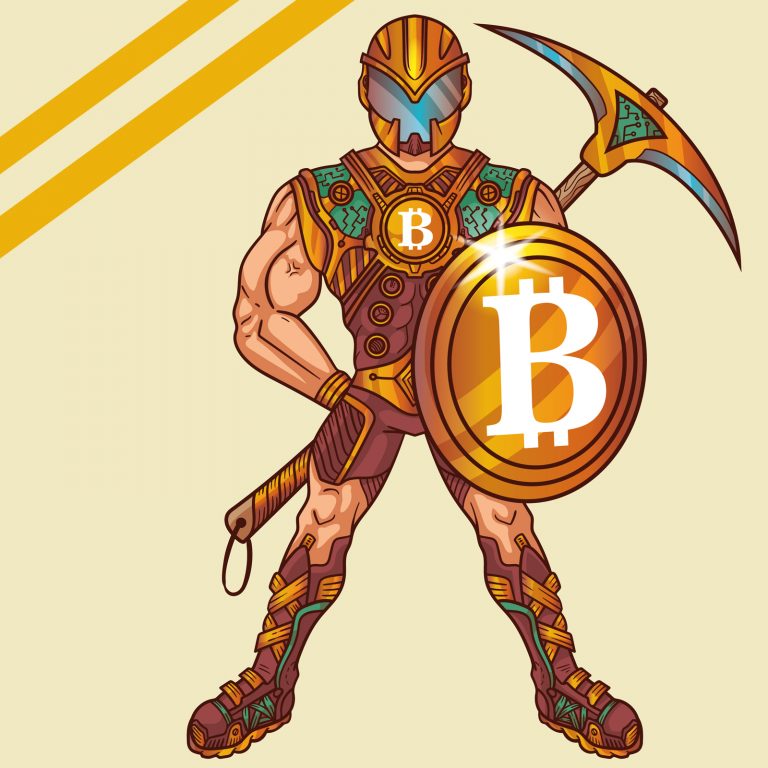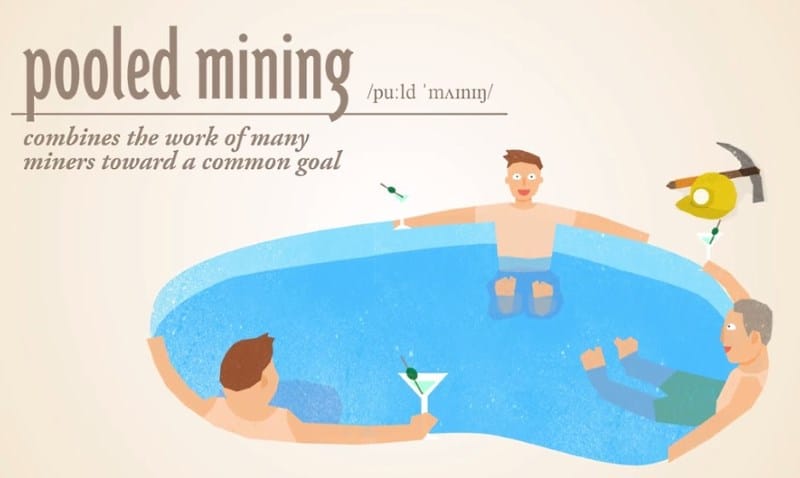
2019-9-16 17:41 |
Mining pools grow and shrink, and rise and fall altogether. Today there are more extinct mining pools than there are active ones. The hashpower of the survivors secures hundreds of PoW crypto networks, from major coins such as BTC and BCH to obscure altcoins such as monero classic and “zelcash.” The following guide provides an insight into the origins of the world’s largest mining pools including their founders, geography, and ideology.
Also read: Big Banks Won’t Touch Crypto Clients – But These Smaller Banks Will
Mining Pools Near Their Nine-Year AnniversaryMining pools have been in operation since late 2010, when they emerged as a means for solo miners to share their computing resources and increase their chances of discovering blocks. While a lot has changed in bitcoin mining since then, including the introduction of dedicated ASIC mining rigs and the rise of huge mining farms, the basic premise of pools remains the same. Save for a handful of privately operated exceptions, pools are open to anyone to join.
BTC mining pool hashrate distribution for the last four daysIn addition to the dominant SHA-256 mined coins such as BTC and BCH, there are dozens of altcoins that can be mined using algorithms such as the popular equihash. Mining pool 2miners.com, by way of example, records the hashrate and profitability for scores of equihash coins, its layout showing the sort of metrics that cryptocurrency miners have become accustomed to crunching in their quest to determine the most profitable coins. As mining pools near their nine-year anniversary, an examination of the nine largest BTC pools – most of which also mine coins such as BCH and ETH – captures the state of pooled mining today.
2miners.com stats BTC.comFounded: 2015
Owner: Bitmain
BTC hashrate (four-day average): 17.7%
Coins mined: BTC, BCH, ETH
History: Originally created by Bitrail to serve as a web wallet, BTC.com still provides mobile and desktop wallets as well as a block explorer and Bitcoin API. It’s best known for its mining pool though, which has been in the hands of Bitmain since being acquired by the mining manufacturer in July 2016.
Trivia: In June 2017, BTC.com appealed for the sender of a transaction with an 80 BTC fee attached to come forward, with the pool offering to return the accidental fee.
F2poolFounded: April 2013
Founders: Discusfish and Wang Chun
BTC hashrate: 13.8%
Coins mined: BTC, LTC, ETH, ZEC, SCC, SC, DASH, XMR, DCR, XZC, AION
History: F2pool is China’s oldest bitcoin mining pool, and the second largest BTC pool in the world today after BTC.com. It also operates the third largest ethereum mining operation. As the Bitcoin Wiki explains, the F2pool was once known as Discus Fish on account of its coinbase signature of 七彩神仙鱼 (Discus Fish), the nickname of one of the operators. Today, F2pool captures 12.38 EH/s on the BTC network, 50.36 TH/s on LTC and 21.42 TH/s on ETH. The pool also provides Android and iOS apps and a range of tools including mining revenue comparisons.
Decoded coinbase field for a block mined by F2poolTrivia: In 2014, F2pool controlled 25% of the BTC network and 31% of the LTC, leading to fears that it could launch a 51% attack.
PoolinFounded: 2017
BTC hashrate: 13.3%
Coins mined: BTC, BCH, BSV, ZEC, LTC, DCR, DASH, XMR
History: Started by the founders of BTC.com, Poolin.com is another Chinese pool that’s overseen by a company called Blockin. One of the more innovative mining pools, Poolin has developed tools such as an auto-switch feature that alternates between BCH and BTC depending on which network is more profitable. It also operates a rather basic Lightning Network shop, mining profit calculator, and scores of other mining apps and tools.
Trivia: In June 2019, it was revealed that Bitmain was suing three former employees for violating a non-compete agreement by launching Poolin.
AntpoolFounded: 2014
Founders: Jihan Wu and Micree Zhan
BTC hashrate: 10.2%
Coins mined: BTC, BCH, LTC, ETH, ETC, ZEC, DASH, SCC, XMC, BTM
History: Another Bitmain-owned operation, Antpool is Jihan Wu’s original mining pool. It provides an array of advanced tools for experienced miners, particularly those who are mining at scale. Sub-account mining to a depth of three levels and anonymous mining are all supported, along with same-day payouts.
Trivia: Despite being accused of contributing to mining centralization, Bitmain launched Antpool in 2014 with a “commitment to help decentralize the bitcoin network … and put the majority of hashing power into the hands of consumers.”
ViabtcFounded: 2016
Founder: Yang Haipo
BTC hashrate: 7.8%
Coins mined: BTC, BCH, BSV, LTC, ETH, ZEC, DASH, XMR, DCR
History: Like most mining pools, Viabtc provides a block explorer and wallet. Yet another Chinese pool, Viabtc has since expanded to offer staking services, enabling holders to earn a passive return on their PoS coins.
Trivia: Viabtc is famed as a major supporter of bigger blocks and in 2016 mined the first Bitcoin Unlimited block. It also proposed the name for Bitcoin Cash.
Slush PoolFounded: 2010
BTC hashrate: 6.7%
Coins mined: BTC, ZEC
History: As the world’s first mining pool, Slush can trace its history all the way back to November 2010, when it was first proposed under the name Bitcoin Pooled Mining Server. Slush, which began as a one-man operation, has gone on to mine over 1 million BTC.
Trivia: In March 2018, Slush Pool mined the first BTC block using Asicboost technology.
BTC.topFounded: 2017
Founder: Jiang Zhuoer
BTC hashrate: 5.6%
Coins mined: BTC, BCH
History: One of the more inscrutable Chinese pools, BTC.top operates as a private mining pool, and as such is off-limits to ordinary miners. While other Chinese pools attempt to translate their services into English, BTC.top doesn’t see the need, making the pool something of an enigma to westerners.
Trivia: In July, BTC.top CEO Jiang Zhuoer debated Craig Wright, calling BSV’s path “extreme” and the concept of locking the protocol back to the original 0.1 version “ridiculous.”
BitfuryFounded: 2011
Founder: Valery Vavilov
Coins mined: BTC
History: Bitfury is an industrial mining company that created some of the earliest ASICs, and by 2014 was mining in a pool simply known as pool.io. By early June 2014, this pool, about half of whose hashpower came from Bitfury ASICs, controlled more than 51% of the BTC network, prompting the company to remove some of its power from the pool.
Trivia: Bitfury is a widely mistrusted company that has willingly collaborated with law enforcement to deanonymize bitcoin transactions and erode privacy.
Bitcoin.comFounded: 2016
BTC hashrate: 0.6%
Coins mined: BTC, BCH
History: Bitcoin.com’s mining pool has been operational for three years, having launched on Sept. 21, 2016, with a mandate to push for bigger blocks. From day one, the Bitcoin.com pool could process blocks of up to 16MB, but would only mine 1MB at the time as that was all BTC’s consensus rules would accept. Today. Bitcoin.com offers hardware and cloud mining, with the latter manifesting as contracts ranging from six months to two years. Bitcoin.com provides its own mobile monitoring software, while the Bitcoin.com Wallet is a major product in its own right with over 4.7 million installs.
Trivia: Bitcoin.com mined the first BCH ABC block on Nov. 15, 2018 following the split with SV.
What are your thoughts on the various mining pools highlighted here? Let us know in the comments section below.
Images courtesy of Shutterstock and Blockchain.com
Do you want to maximize your Bitcoin Mining potential? Plug your own hardware into the world’s most profitable Bitcoin mining pool or get started without having to own hardware through one of our competitive Bitcoin cloud mining contracts.
The post A Short History of the World’s Largest Bitcoin Mining Pools appeared first on Bitcoin News.
origin »Bitcoin price in Telegram @btc_price_every_hour
Speed Mining Service (SMS) на Currencies.ru
|
|
















